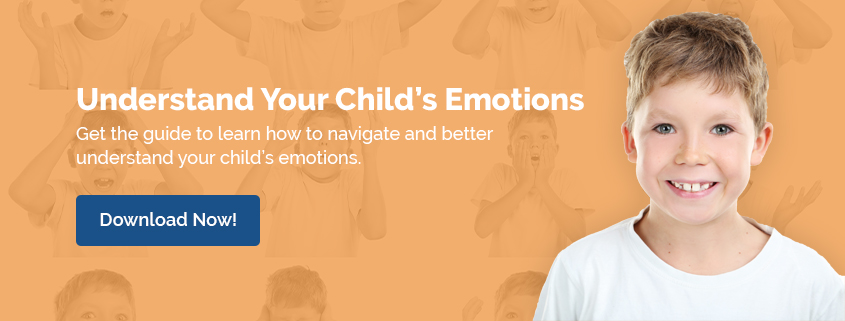Signs That Can Mean Your Child Needs Counseling Support
Sometimes it’s difficult to tell the difference between normal growing pains and a serious emotional struggle. Children who are depressed, anxious, or dealing with other mental health concerns often know that something feels wrong, but find it difficult to get the help they need.
According to data from the Centers for Disease Control and Prevention, 1 in 6 children (aged 2-8 years) have a mental, behavioral, or developmental disorder. Sadly, pediatricians and parents often mistake the early symptoms of childhood depression for normal moodiness or other behavioral problems, such as attention deficit hyperactivity disorder (ADHD). So, the importance of early detection and treatment for children with mental health issues cannot be stressed enough.
If you think your child is struggling but you’re not sure if he or she needs professional help, you may want to take a closer look at their day-to-day behavior. Below are some of the most common warning signs that your child needs therapy support.
Changes in Your Child’s Behavior
The most important thing to keep in mind is that, to some degree, young children acting out and pushing boundaries is a normal part of the child’s development. It’s when those behavior problems start to negatively impact the well-being of others that you need to consider taking action.
[FREE RESOURCE] Discover ways to support your child emotionally with our free guide.
1. Anger and Irritability
Children can experience frequent changes in mood, especially as they transition into adolescence. However, severe behavioral issues should be a warning sign – disrespect toward teachers and authority figures, not following rules at school, and getting into fights with fellow students or siblings.
Parents and family may also notice an increase in general irritability and destructive behavior. In younger children this can present as frequent tantrums. While irritability becomes more common during puberty, constant irritability can be a cause for concern. Destructive behavior can also take the form of destroying possessions or manifest as self-harm.
2. Social and Family Withdrawal
Your child may start to withdraw from the rest of the family and household activities, so it’s important to know whether or not your child is interacting with other family members and loved ones (besides you). If they are withdrawing from the entire family or no longer feel safe around people, this could be a sign that something is wrong.
If your child has always had friends and now no longer feels comfortable talking to anyone, depression or anxiety may be a factor. If your child is fearful of things that never bothered them before, such as going to school or taking part in their favorite activities, it may be because they are feeling fearful about what is happening around them and don’t know how to handle it.
It’s important to validate what your child may be going through so that they feel heard and know that support is available to them.
3. Bullying
There are two sides to bullying: being bullied or being a bully. Either way, bullying can be cause for concern.
If a child is a victim of bullying, the signs are not always obvious, and an uptick in out-of-character behaviors may be an indicator. Bullied children are at higher risk for developing anxiety, depression, and low self-esteem, and a child’s emotional health can be damaged well into adulthood.
If you suspect your child is being bullied, ask them directly. If they are reluctant to answer, gently ask why they don’t want to talk about it and reassure them that you will help keep them safe at school.
If your child is a bully, there may be a lack of empathy and remorse for their behavior. They may be aggressive or have poor impulse control. These behaviors can cause problems at school and in social settings. Poor impulse control can also lead to trouble with the law. If your child has these tendencies, seek the guidance of a counselor who specializes in helping children deal with aggression issues.
Changes in Your Child’s Health
In addition to behavioral signs, there are also physical indicators that can be indicative changes in your child’s mental health.
4. Changes in Weight or Eating Habits
Eating too much or too little are common signs that something may be going on with your child’s mental health. Sudden loss of interest in food, or a significant increase in appetite, may be a sign of depression. Unexplained weight gain/loss can also be a sign of an underlying problem such as an eating disorder, drug abuse or other mental illness.
5. Body Aches
Some children may experience physical pain, such as headaches or stomach aches that are triggered by stress or anxiety. Kids often complain about these symptoms even though there is no physical cause for them.
It may be hard for children to explain why they’re experiencing pain or why it’s so intense. Other children may not verbalize their pain at all but instead show signs of irritation, anger or fatigue.
6. Poor Hygiene
Children with mental health concerns often have poor hygiene or lack basic grooming.
A child who used to take pride in his or her appearance may stop caring about how he or she looks, and their clothes and hair might become unkempt. Children who are depressed, suicidal or fearful might isolate themselves, which can make them less likely to bathe or put on clean clothes.
7. Change in Sleeping Habits
Pay attention to your child’s sleeping habits. Children who have trouble falling asleep (or staying asleep) may be internalizing bigger issues or other stressors. A child therapist can help to determine if sleep issues are the result of anxiety or depression, or possibly a more serious medical issue.
Children who have trouble sleeping might also wake up frequently during the night or have nightmares, which is another sign that they may benefit from counseling.
8. Drug Abuse and Risky Behaviors
While these usually indicate serious problems, drug abuse and risky behaviors can also be the result of numerous underlying issues.
When a child begins to experiment with drugs, self-harm, or participate in risky behaviors, it is important to look into the underlying causes. A child who is acting out may be suffering from depression or a concern that they don’t feel comfortable talking to their parents about. Counseling can help your child deal with root issues while also giving them trusted support along the way.
Know When to Seek Help from a Mental Health Provider
The past couple of years haven’t been easy on any of us, with the COVID-19 pandemic affecting life so suddenly and deeply. Children are especially vulnerable to these changes but rarely have the emotional tools to discuss their feelings.
Counseling helps children deal with anger, sadness, and negativity, while teaching coping skills that last throughout the child’s life, well into adulthood.
If you are noticing signs that your child needs counseling, contact Meridian Healthcare today to schedule a discussion with one of our caring, trusted mental health professionals. We offer counseling for children as well as family therapy to address common stressors, traumas, depression, and phases of life. Don’t wait to regain peace and wellness in your home.






